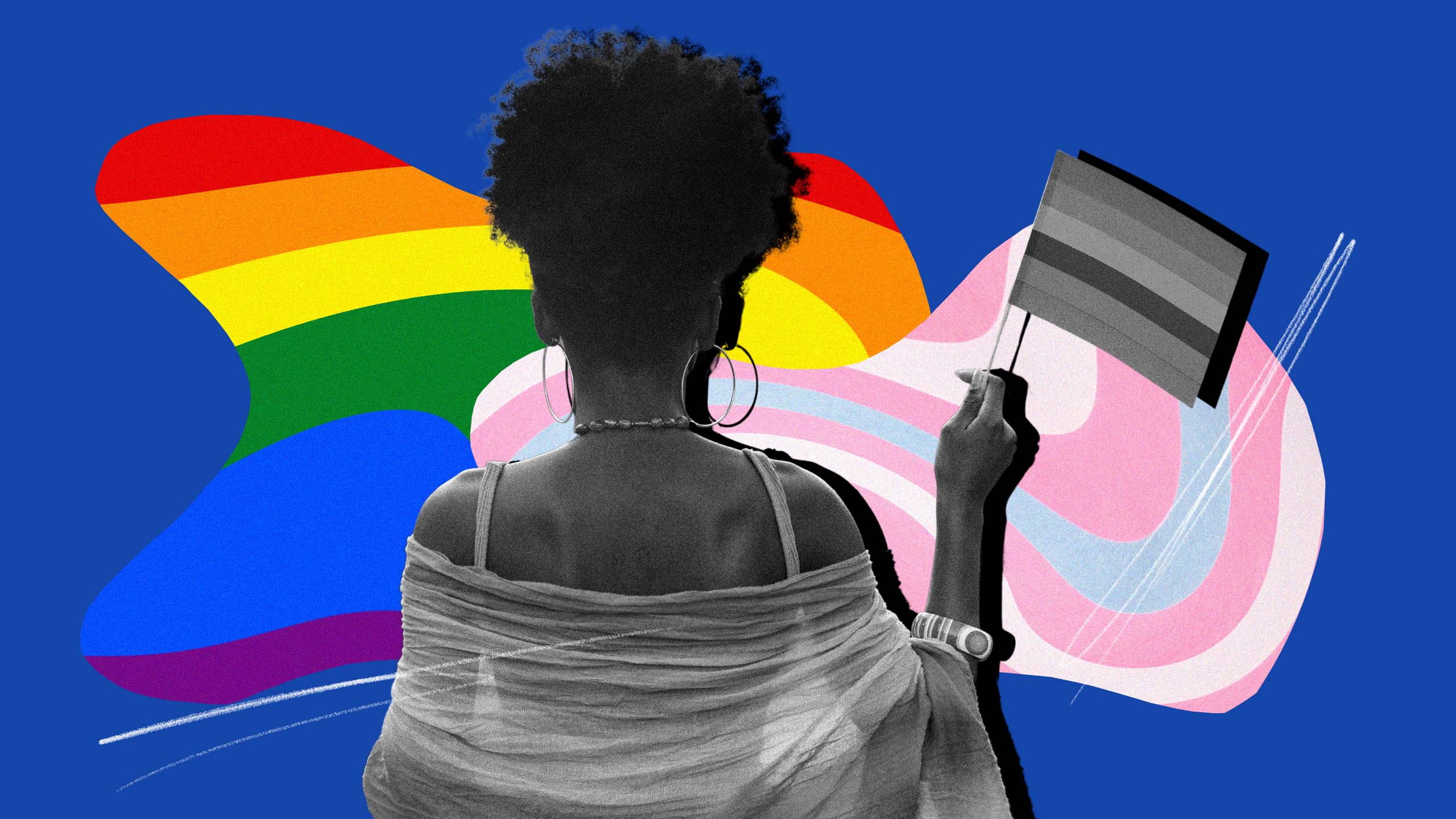LGBTQ+ rights are a growing priority for African youth despite challenges facing the community across the continent, according to a newly published survey.
A June report published by the Ichikowitz Family Foundation, an environmental and humanitarian nonprofit based in South Africa, indicated that 38 percent of young adults in sub-Saharan Africa want their governments to do more for LGBTQ+ rights—a seven percent increase from the foundation’s last survey, which was conducted in 2020. The organization interviewed 4,507 youth between the ages of 18 and 24 across 15 countries, including Ethiopia, Ghana, Kenya, Nigeria and Uganda.
Of respondents, 78 percent said that they had experienced some form of discrimination throughout their lives based on their identity. One in 10 (10 percent) said they had faced bias due to their gender or sex, while four percent said the incident was motivated by their sexual orientation.
Polling found that African youth were broadly concerned about the state of civil rights, even outside of LGBTQ+ equality. More than four in five youth (81 percent) said they were “concerned” about gender-based violence, while a nearly equal number—79 percent—expressed a desire to strengthen protections for women in their country. Five in six (83 percent) said their government leaders should to more to prevent discrimination against ethnic minorities.
In comments accompanying the report, the foundation said the goal of its study was to provide “insights into the aspirations, motivations and viewpoints of Africa’s youth.”
Homosexuality is currently illegal in at least 32 African countries, including many of those included in the report. Many of these are laws enacted under European colonialism in the 19th century, and among the most draconian are Gambia, Kenya, Malawi and Nigeria, each of which mandate up to 14 years in prison for sodomy convictions. In Sierra Leone and Tanzania, the punishment is life imprisonment, while Mauritania mandates death by stoning.
Many of these countries have pushed to enhance their anti-LGBTQ+ laws in recent years. Nigeria is currently weighing a bill that bans “cross-dressing,” and in July, a court in the culturally conservative country ordered three men accused of homosexuality to be stoned to death. In 2019, rumours spread that Uganda planned to revive its notorious “Kill the Gays” bill, although that has yet to come to fruition.
Meanwhile, LGBTQ+ people in countries like Ghana, Tanzania and Egypt have faced increasing police repression—with authorities sometimes using the COVID-19 pandemic as a pretense to crack down on queer organizing.
This is not to say that the situation is dire all across the continent—or that it always has been. South Africa’s post-apartheid constitution was the first across the entire globe to outlaw discrimination in employment and other areas based on sexual orientation. It was also the fifth country in the world to legalize same-sex marriage in 2006 and remains the only country in Africa to have done so. Same-sex couples in South Africa can also adopt and receive IVF and surrogacy treatments.
Angola, Botswana, Cape Verde, Mauritius, Mozambique and Seychelles have since followed suit by enacting their own non-discrimination laws, although those offer various levels of protection. For instance, Mozambique’s laws only apply to discrimination based on sexual orientation in employment and offer no protections against anti-trans bias in either housing or the workplace.
As younger generations of Africans increasingly welcome LGBTQ+ equality, several countries have worked to repeal laws that once targeted queer and trans people. To date, homosexuality has been decriminalized in 10 African countries, including Botswana in 2019 and Angola and Gabon in 2020.
Elsewhere, Zimbabwe decriminalized HIV transmission in April, four years after Kenya’s high court declared it unconstitutional to criminalize the spread of HIV.


 Why you can trust Xtra
Why you can trust Xtra


